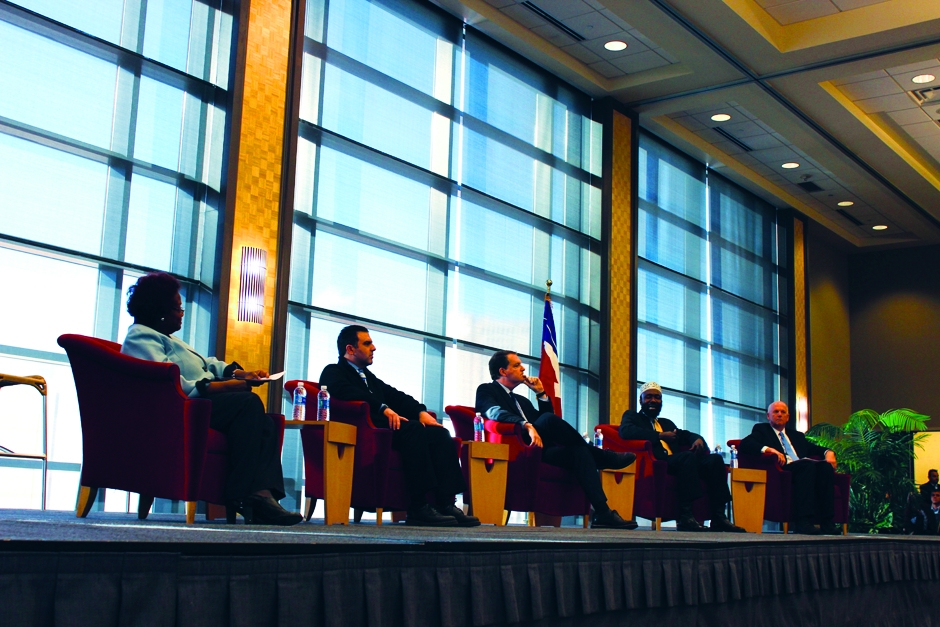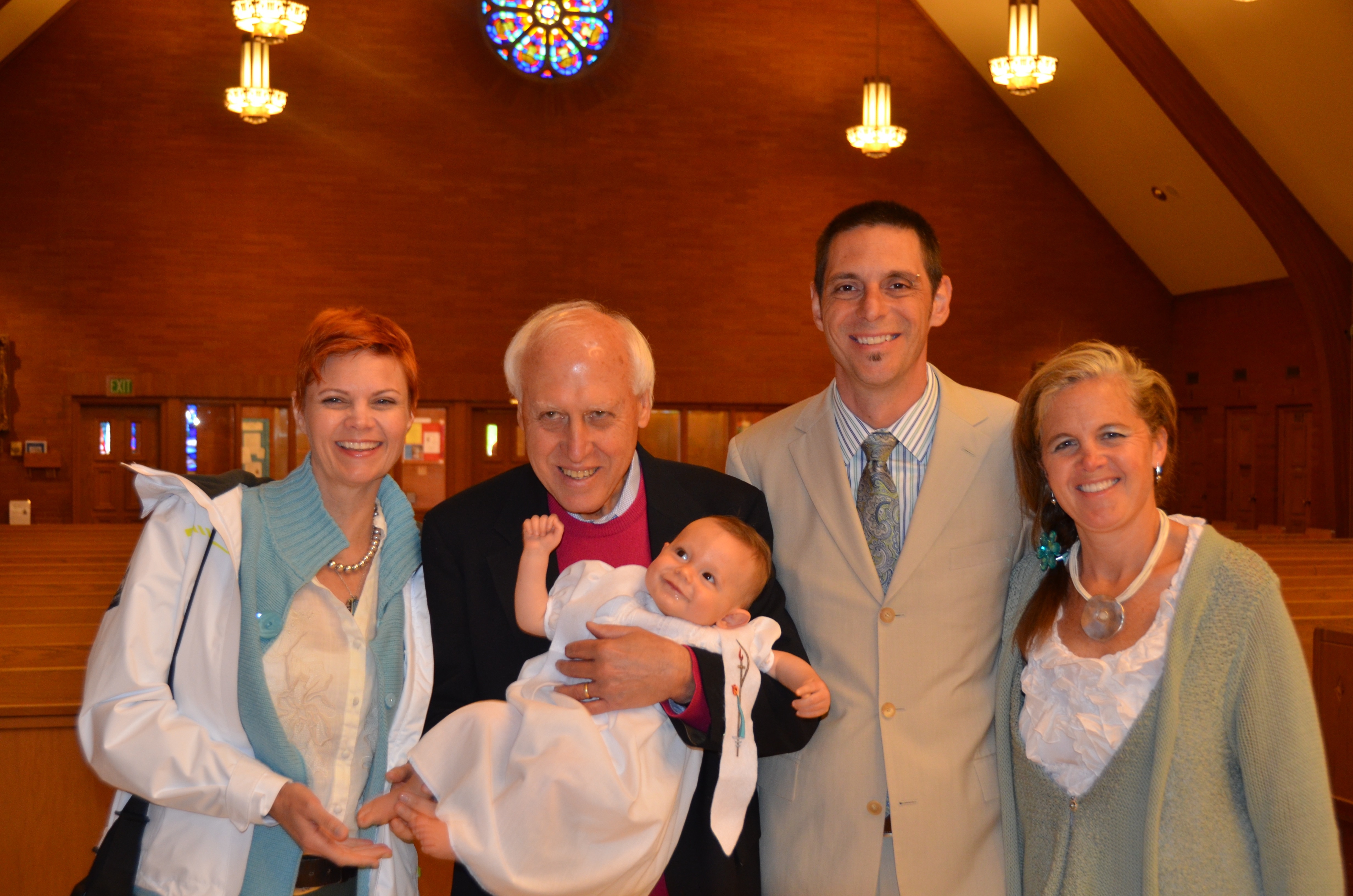
Panelists discuss immigration and Trump’s executive order at a panel on civil discourse Feb. 13 in the Power Center Ballroom.

Panelists discuss immigration and Trump’s executive order at a panel on civil discourse Feb. 13 in the Power Center Ballroom.
Raymond Arke | Asst. News Editor
Roughly 700 students packed the Power Center Ballroom Feb. 13 for a panel discussion on race and understanding.
The first presentation in this series from Duquesne President Ken Gormley presented “Racial and Cultural Understanding in a New Era,” the first part of a series on civil discourse. Esther Bush, president of the Urban League of Greater Pittsburgh, and David J. Hickton, former U.S. Attorney for the Western District of Pennsylvania, served as moderators for the panel.
Bush and Hickton each encouraged students to participate in political discussions politely.
“Approach someone who doesn’t look like you … [and] find out how wonderful it is to embrace someone not like you,” Bush said.
Hickton asked that students be civil when debating.
“Learn how to disagree without being disagreeable. Listen twice as much as you speak,” he advised.
The event featured two panels on two different topics — race relations and policing, and Muslims in America.
Titled “Muslims, Immigration, and the American Dream,” this topic featured three panelists, along with a guest. Imam AbduSemi’h Tádés, director of Religious Affairs of the Islamic University Center in Pittsburgh and Cleveland; Lawrence Lebowitz, an immigration lawyer at Cohen & Grigsby; and Emad Mirmotahari, an associate professor of English at Duquesne, all participated in the panel. Fayezeh Haji Hassan, a third year Duquesne law student and Iranian immigrant, also spoke.
This conversation centered on President Trump’s recently-halted executive order barring immigration from seven Muslim-majority nations.
Lebowitz said that the executive order has increased business.
“[These have been] the busiest weeks I’ve ever had,” he said.
Imam Tádés was critical of the violent perception of Muslims, blaming the misconceptions on a bad-intentioned few.
“Some people have hijacked Islam for their own interests,” such as radical terrorists, Tádés said. He also pointed out there are others misusing the religion as well.
“Policymakers in Western countries have hijacked Islam and turned it against Muslims,” he said.
Hickton questioned the hypocrisy of punishing an entire religion for the transgressions of a few.
“Why, when Timothy McVeigh blew up the Federal Building in Oklahoma City, was there not a conversation about expelling all white males from this country? And why have we not recognized that approximately 80 percent of terror threats, certainly here in Pennsylvania, come from people who look exactly like me, not Imam Tadese,” he said.
Mirmotahari added onto that, warning that even harsh words can harm.
“The cultural and perceptual damage that has been inflicted just in the last few weeks on a public that was at best ambivalent and at worst already caught up in the throes of Islamophobia, that damage has been done,” he said.
Mirmotahari explained that because of hateful attitudes towards Muslims, he has felt the need to speak out more often.
“I’ve come to accept and even embrace the fact that, whether or not I like it, I’ve become an ambassador for Islam. I have to be ready to have these conversations, and I have to be ready to hear and read insulting comments,” he said.
Imam Tádés explained that the differences between religions that scare people may not be as great as they seem.
“I always wonder, how come we have Catholics wondering why we have Muslim women covering their heads when we have all these nuns too? I have had a beautiful time with Bishop Zubik, when there were all these nuns who had their heads covered more than Muslim women do,” Tádés explained.
Last week, a collection of Duquesne professors, calling themselves the Faculty Social Justice Association, sent a letter to President Gormley asking him to take a stronger stance opposing President Trump’s executive order on immigration. President Gormley chose not to address the group’s concerns during the event, but had issued a letter response on Feb. 10.
The other panel was called “Race and Police: Building Trust in Communities,” and featured Coleman McDonough, superintendent of the Allegheny County Police Department and Tracey McCants Lewis, an assistant clinical professor at Duquesne Law School.
The main discussion revolved around systematic racism in the police and how relations between departments and African Americans can improve. The panelists generally agreed that there can be racist police and they hoped that with the spread of body cameras and other technology, misconduct will drop.
McDonough said training has come a long way as well, and that police have been doing a better job getting rid of “the bad apples.”



